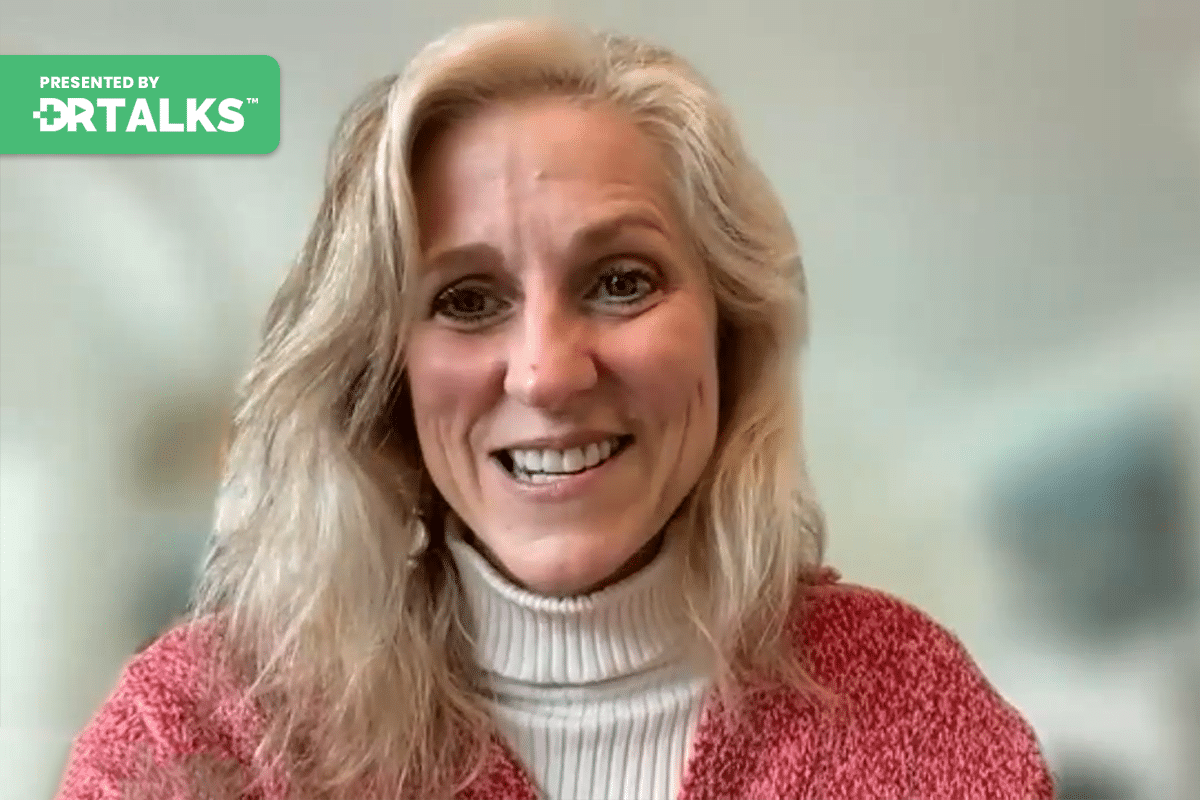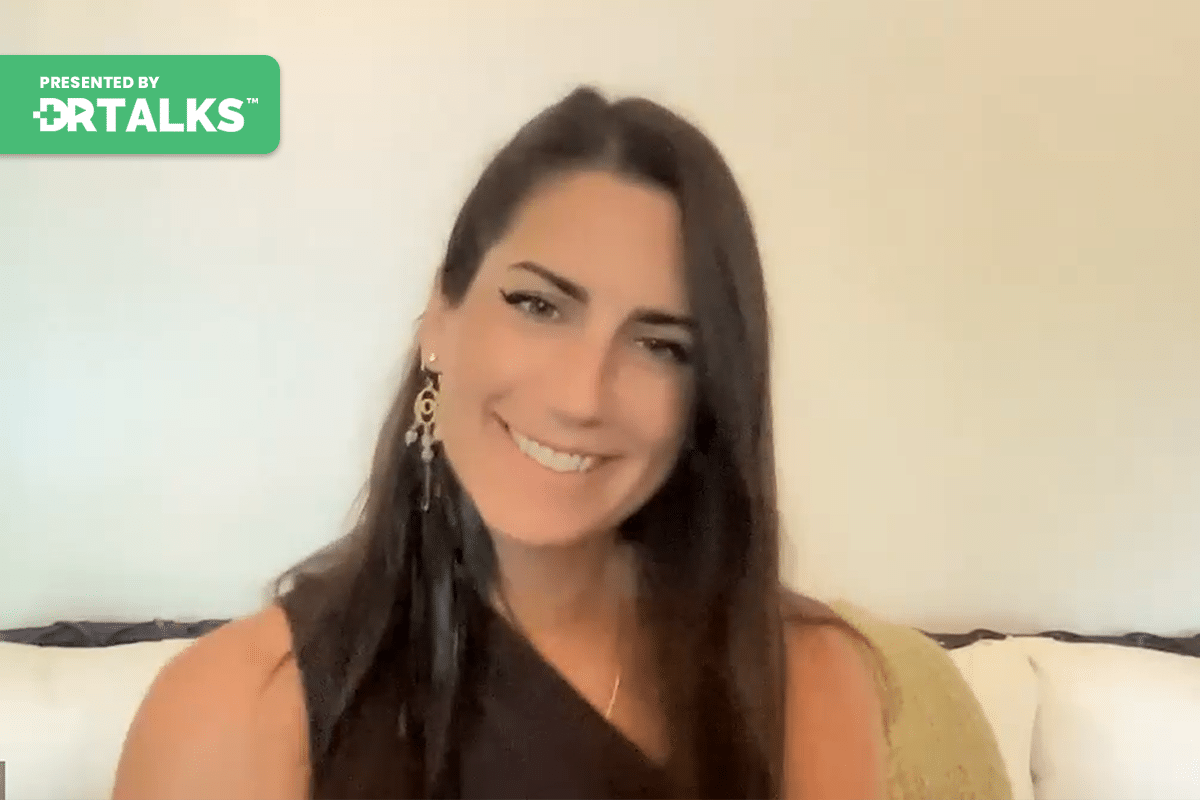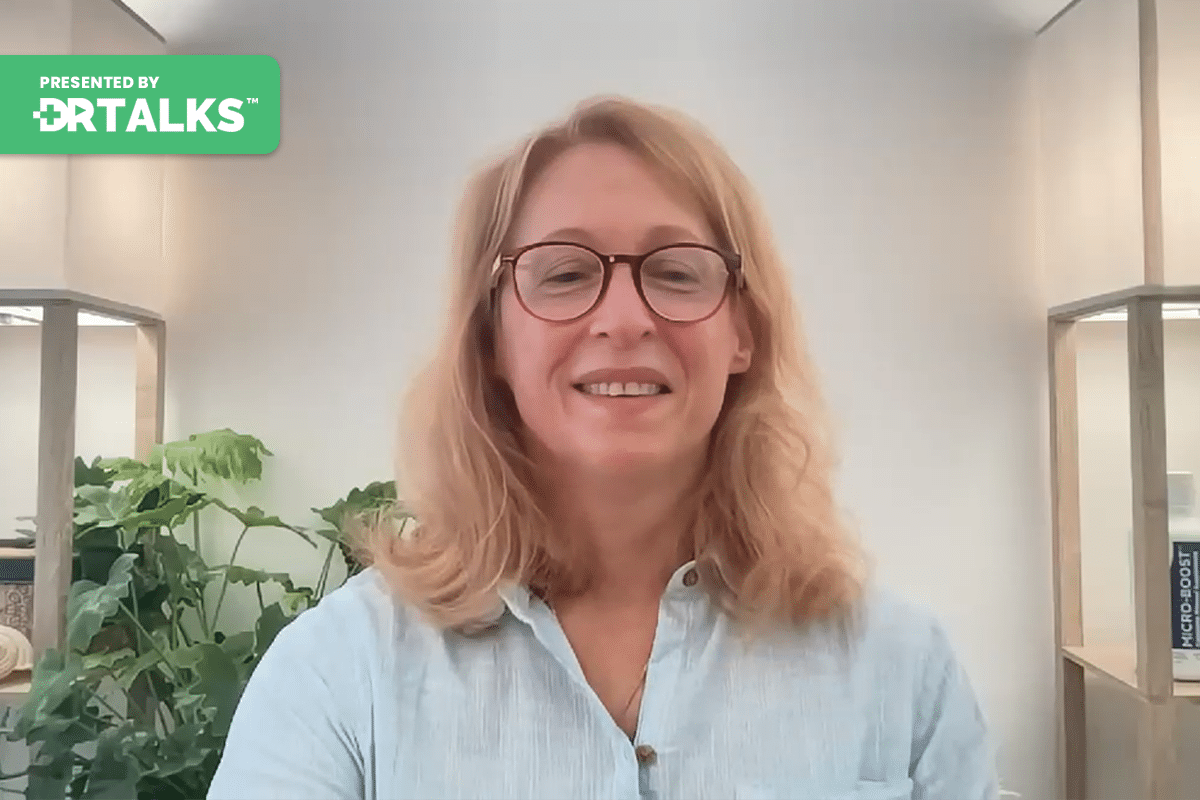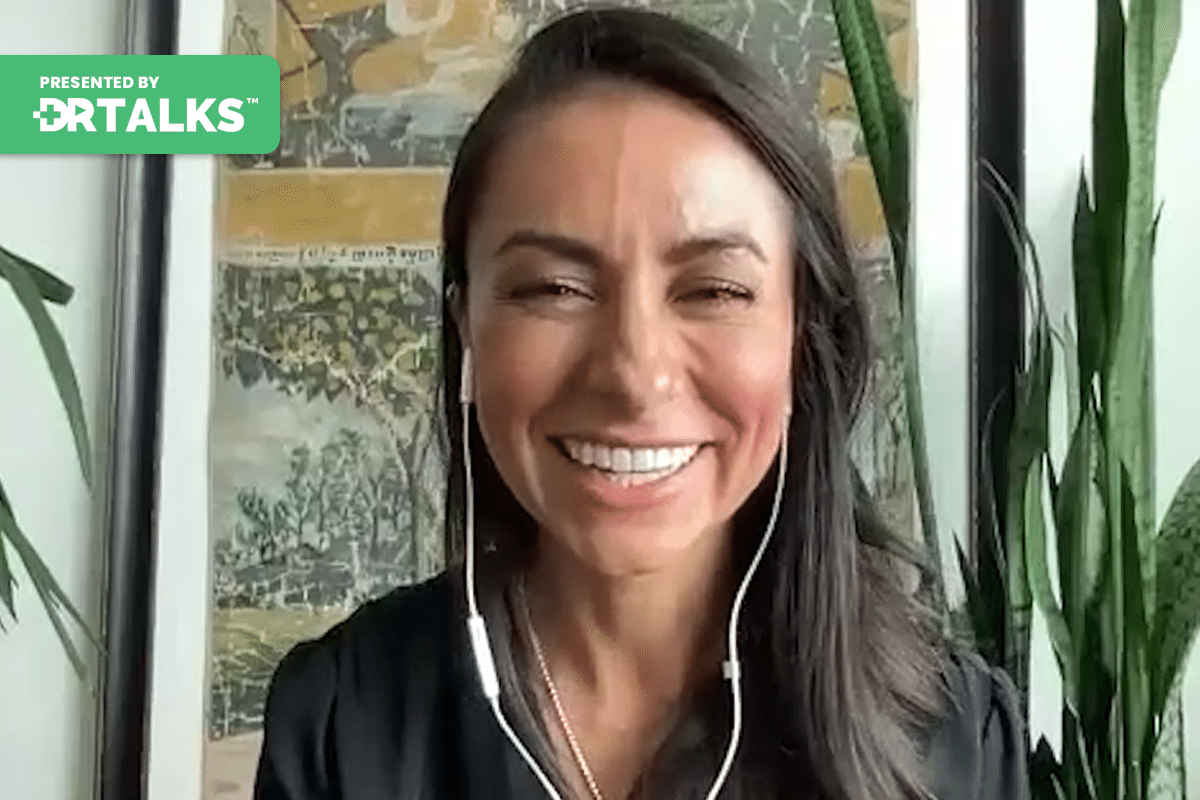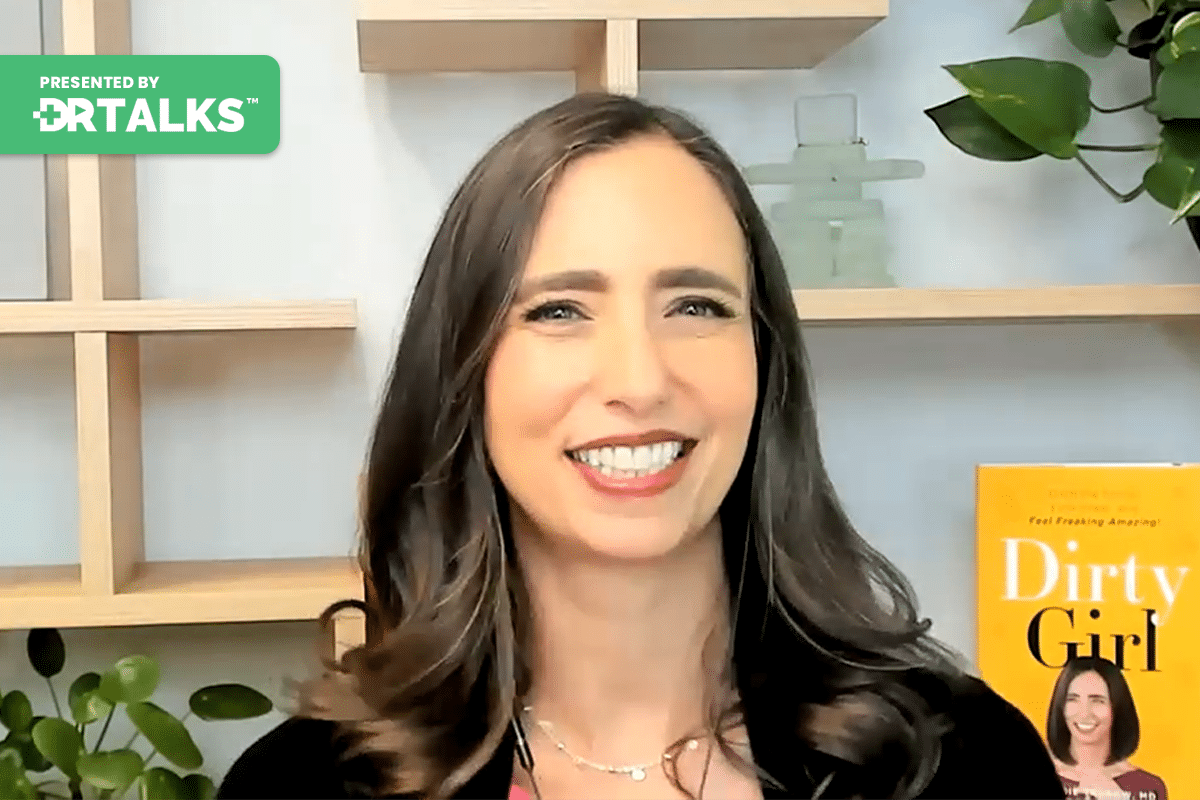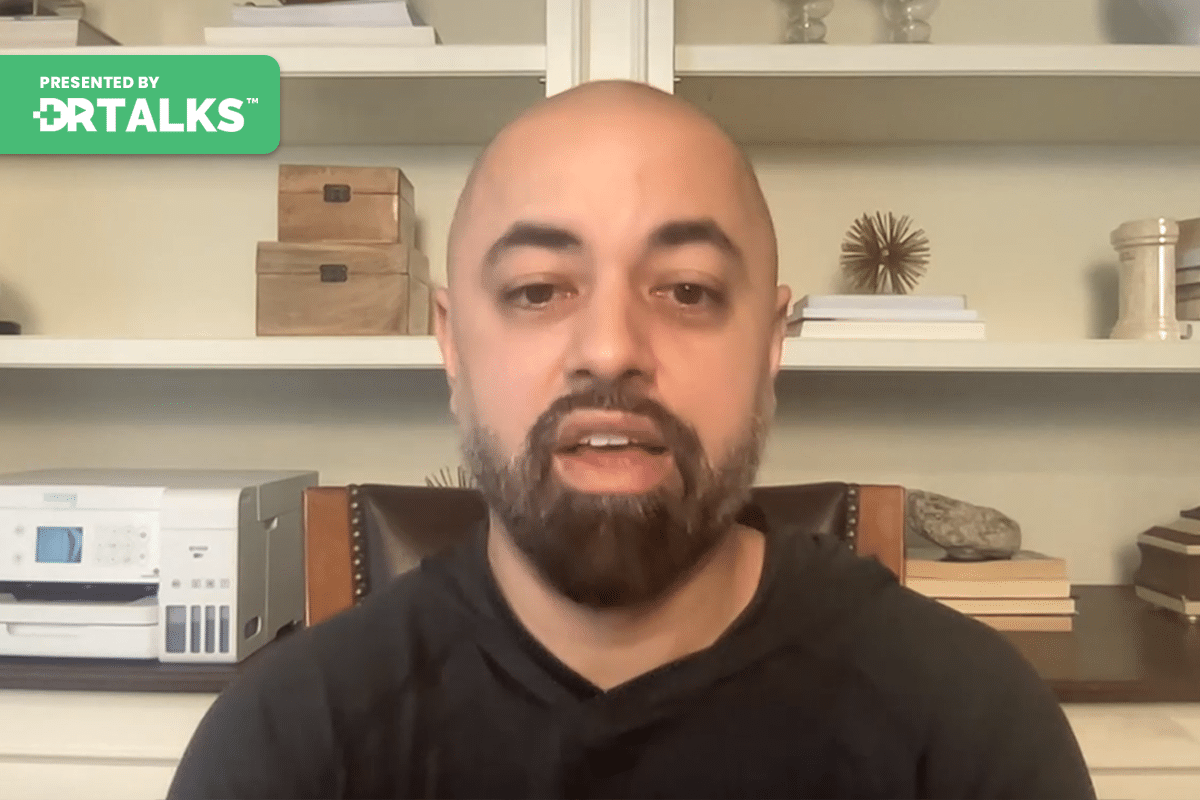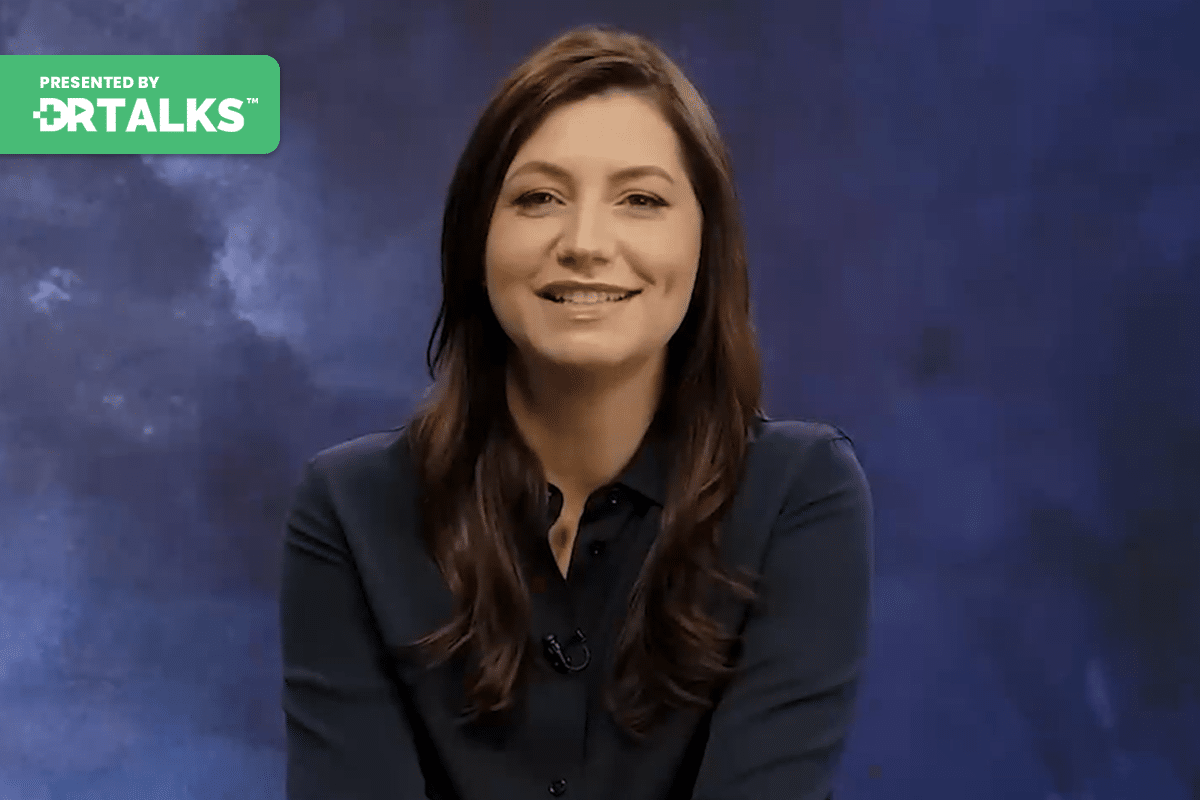Join the discussion below

Kashif Khan is the Chief Executive Officer and Founder of The DNA Company, where personalized medicine is being pioneered through unique insights into the human genome. With the largest study of its kind globally, The DNA Company has developed a functional approach to genomic interpretation overlaying environment, nutrition, and lifestyle... Read More

Tricia Nelson lost fifty pounds by identifying and healing the underlying causes of her emotional eating. Tricia has spent over thirty years researching the hidden causes of the addictive personality. Tricia is an Emotional Eating Expert and author of the #1 bestselling book, Heal Your Hunger, 7 Simple Steps to... Read More
- Discover the psychological and emotional triggers behind nighttime binge eating and learn how to differentiate between emotional hunger and true physical hunger
- Equip yourself with effective strategies to combat obsessive food thoughts and cravings, and learn how to create a nurturing relationship with food
- Break free from the cycle of emotional eating and build a healthy, balanced relationship with food that supports your mental and physical well-being
Kashif Khan
Welcome back, everybody. Today we are talking to Tricia Nelson. You are going to be really excited about what we are talking about, I am going to tell you in a second. First of all, thank you for joining us.
Tricia Nelson
I am so happy to be here.
Kashif Khan
She is going to tell you how to break up with two people at the same time. Their names are Ben and Jerry. Both are gone from your life, disappearing, and we are explaining what that all means. Tricia has a pretty amazing story about weight loss. The one thing she found that she got stuck on and that was her emotional eating. This is such a common thing, whether it is in your awareness or not, some people do not even know. But we are going to dive deep into what it is, how to identify it, and how to fix it, all that beautiful stuff. You have written a book about this as well; people can go find that. We will talk about this in a second. But again, thanks for joining us. It is going to be a great conversation. Tell us your story. How did you get to this place?
Tricia Nelson
Yes. Well, not without a lot of pain. I promise you that. I think I was obsessed with food from way back then. I love to eat, I love to cook, and I love to go out to dinner with family. It was just a great obsession for me, which there are lots of foods in the world that would not have been bad. But the bad thing was that I gained weight really easily,and by age 21, I was 50 pounds overweight, and that was really from binge eating. I was not just a foodie; I was a binge eater, and I would have pretty wild binges late at night on the sofa in front of the TV. I would not intend to eat as much as I did, but I would. I would go overboard and eat the whole pint of ice cream, The Ben and Jerry’s. I have to have salty with your sweet. I would have chips, and I would have cereal, and then another bowl of cereal, and then another bowl of cereal; it was just endless until the end, when I felt totally sick. For those who have seen my TEDx talk, I talk about garbage eating, which is when you reach that point of feeling totally disgusted and you basically pass out on the couch and think, you basically think to yourself, I am never going to eat that again, and you throw the remains out, and then you pass out on the couch, but when you wake up or the next morning, you reconsider that decision and you basically go back to the garbage because you know there are cookies still in there and go back and get them. I would do that many times, or at least a handful of times, and I just thought I was the worst person in the world. I was like, OMG, I just ate out of the garbage. I just fished food out of the garbage and ate it, and I cannot tell you how many times I have heard this from other people, like, Oh my God, I have done that.
And in my TEDx talk, I have thousands and thousands of comments of that same nature, like, Wow, I thought I was the only one. That is kind of how it went for me; it was very private, and it was very shameful. Because I had tried so many diets, I thought I was hopeless. I thought, Wow, this is going to be the rest of my life, up and down the scale, because I could not lose weight. You go on a new diet; you have the new diet syndrome, like, Wooh, we’re doing it, and it lasts for maybe a couple of weeks or months, but then it gets really hard. The question is, Why does it get so hard? Why is it not as easy at the beginning? My experience is that when we take away all of our fancy, yummy foods and are just eating diet food, if you will, all the emotions come to the surface. All the things that we had kept at bay with food and excess weight come to the surface, and diets do not give us tools for dealing with those emotions. All of a sudden, you are just feeling crappy; you do not know why. You are like, This diet is not fun; bring on my old foods that brought me comfort, and that was my cycle over and over. It was not until I learned about the fact that that is why I felt so crappy. Weeks into a diet. It was not until I learned about that and the fact that it was part of the cycle of the emotional eater and I started learning how to address those emotions that would come to the surface. That is when I was able to keep the weight off finally and have a new life. Because when you deal with those emotions, they are not letting you down, and all kinds of things in your life get better.
Kashif Khan
Even the way you described your story, it sounds like you removed the food for a second and replaced it with something else; that is like a substance abuse story. It just happens to be food; it could have been anything, but people get into those problems for similar reasons: they need something to lean on. But the habits sound exactly the same.
Tricia Nelson
And that is so right on. Because you talked about breaking up with Ben and Jerry, it is an abusive relationship. It is an abusive relationship; it is not like Ben and Jerry were so great to us. At the moment, it feels great. It brings comfort, but there is a harsh backlash from it, which is the weight gain, which is the gut issues, which are autoimmune issues, yo-yo dieting syndrome, feeling bad in your body, feeling like you are not lovable or attractive, and shutting down in the bedroom. There are so many effects that come from that seemingly innocuous pint of Ben and Jerry’s, and that is what I am doing here: it got so painful that I had to find a better way, and it was not through dieting, and I am grateful that I found that. Then, just to kind of finish up the story, for the past several decades I have been showing people my step-by-step process for doing just that in finding freedom.
Kashif Khan
Yes. You mentioned something earlier about how you kind of set it, breaking the cycle like that is the thing. How do you get out? Because everyone knows you are feeling it, you know it is a problem; your hands are in the garbage can, and pulling the cookies out. What is that trigger? Maybe I thought of one thing. You just said that there are several steps, but actually getting out of the cycle that you are stuck in and not diving back in.
Tricia Nelson
Well, my experience is that we dive back in when we have this buildup of pressure. That pressure is something I call the compulsion to eat. There is a lot of it that is not talked about. Why do we go back? Why do we self-sabotage? In my experience, this is what happens in the gut of somebody who has this pattern. I like to use the term emotional eating. It is not a precise term, but to me, it is any kind of disordered eating. Any kind of constant relationship with food that feels dysfunctional, that does not feel healthy. It is emotionally driven, whether it is undereating, or overeating, or binge eating, or binging and purging, or whatever it is, restriction, whatever it is, it is driven by our emotions. We would not be doing this if we did not have some emotional component to it. That is really why we sabotage it, because that is what is not getting addressed.
The compulsion to eat is what usually drives us back to the food, and nobody is really talking about this. What I mean by compulsion is that you feel compelled to eat. You are crawling up the walls, and you cannot stop yourself. It feels like a tsunami that you cannot stop. And my experience is that it is made up of three things, okay? It is definitely made up of varied emotions. When we have things happen to us and we are like, Oh, I am fine, emotionally there is always a saying, I am fine, which actually stands up. I am just going to say this: it stands for F-up, insecure, neurotic, and emotional. You are saying, You are fine a lot, and we know what you really mean. Basically, the compulsion comes from being fine all the time, which means we are suppressing emotions. Okay? The buried emotions are a big part of it. And you never say, Oh, I want chocolate so I can bury my emotions. It is not a conscious thing. I am just trying to bring your attention, the people listening, the attention to the fact that there is something going on that is deeper than, I like chocolate. I just thought I liked food until I started digging into this. I am like, No, there is an emotional connection there, not always, but when we bury emotions as a habit, which is another part of the compulsion. It is a knee-jerk reaction, and there is something going on; we are just not necessarily aware of it.
The buried emotions also stress a lot of times; you can call this tsunami, or you can call it a monster inside. We have this monster that is just growling and growling, and finally, we just have to feed it. That compulsion is like building inside; it is like magma in a volcano; it is down underneath, deep into the volcano, but at some point, it blows. That is what this compulsion feels like for the emotional eater. It is just that you cannot stop it, and it is demoralizing and sad. Of course, people blame themselves, saying, What is wrong with me? I have no willpower. But we have to unpack this compulsion. Emotions, stress, and habit, for most people, this has been a lifelong habit from way back when. This was a coping mechanism that we used, and it worked. When we were kids, it worked. It is a lifelong habit. It is really important that we unpack those three things: emotions, stress, and find new ways of coping instead of using food. I am happy to unpack each of those with you if we have time.
Kashif Khan
Yes, we will. That is really exciting to hear, especially with the firsthand experience you have been through this. I wanted to comment on one thing because you have reminded me of some research we did. We run genetic testing, and we understand the functional pathways of the body. What we learned, and it is just so aligned with what you are saying, what we learn is people that are dysregulated in their serotonin pathway. Serotonin is that happy. Let me respond as appropriate for whatever is going on; my mood is balanced. People that are dysregulated tend to lean on coping mechanisms. The body kind of calls it a protective measure to not get stressed and not have a cortisol response, which would point you towards food and make me happy. Then we have people that clear their dopamine and neurochemicals a little slower, causing the protein activity to get rid of itself and bring you back to default. I am no longer in that reward-seeking moment. People who like clear and slow tend to get stuck in pleasure; you are enjoying something and you cannot stop, and you end up binging. I can put these two together, the combination of serotonin dysregulated seeking coping mechanisms, and when I finally get it, I cannot get out of it. That becomes who you are, and it becomes the tool that you use. And we see this over and over again. It would be interesting. We are going to run your genetics. We are going to figure this out and see if you are wired the same way. That was an experiment; you could be a guinea pig. But we have seen this over and over again.
Tricia Nelson
Yes, I love that, and it is so true. There is no question there is a lot going on. I am not a scientist; I do not approach it from that place; I approach it from the emotional eater’s experience. But there is no question that serotonin plays a part in that dopamine hit of the binging and how it brings relief so quickly, and we get hooked on that relief. I definitely lived that.
Kashif Khan
Yes. I wanted to ask you something just from personal experience. We are going to get into what you said. Let us start unpacking this and breaking it in, and fixing it. But one thing that you mentioned earlier that I experienced too, the nighttime eating. Why does this happen at night consistently for people?
Tricia Nelson
My experience again, from the layperson’s, binge eaters, and hopeless food addict’s experience, my experience is that, because we do not deal with our feelings very effectively. First of all, there is so much here. First of all, the emotional eater has a personality profile. Okay? Emotional eating is not just digging into Ben and Jerry’s when you feel upset; it is not that simple. It is not eating cookies because your grandma made you cookies when you were a kid and you are nostalgic; it is so much deeper than that. And one of the things I have identified in my book, which you mentioned, is “Heal Your Hunger: Seven Simple Steps”. It is hard to see that, is it not? Anyway, my book is called “Heal Your Hunger: Seven Simple Steps, End Emotional Eating Now.” And in my book, I identified 24 personality traits of the emotional eater, and these are traits that have nothing to do with food and these are related to the stress that causes the compulsion. That is, we tend to do things that are habitual, and they are habitual coping mechanisms, like we talked about. For example, as emotional eaters, we tend to people please. Okay, we tend to people-please, and that runs us into trouble because we think we are going to get all kinds of kudos when we people-please, and we knock ourselves out for this external affirmation, this external validation. The traits of the emotional eater are ways that we coped as kids, maybe in dysfunctional homes. Dysfunction and trauma are no strangers to emotional eaters.
Definitely a coping mechanism as kids, it was for me, sexual abuse and eating to deal with dysfunction in my family. What happens is these coping tools that once did not work, they saved our lives perhaps. We bring them with us into our adulthood and then they do not work; we knock yourselves out, we exhaust our adrenals, and we end up running ourselves ragged, overdoing. And overdoing is a big problem for emotional eaters because we are on that hamster wheel of seeking validation that we do not have for ourselves. And when we overdo with the expectation of validation, not only we are exhausted but we are also resentful, which is another one of the traits of the anatomy of the emotional eater. Between running yourself ragged and feeling pissed off like, Hey, after all I did for you, I get a thank you; that is it? Where is the parade? Where is the fanfare? And it just reinforces that, Screw it, I have to do this for myself; I have to reward myself, and we go and have the I deserved it binge. They do not appreciate me; I will take matters into my own hands.
That part is what creates the stress, and that creates the compulsion. I remember I said it was emotions, drives, and habits. A lot of times, it is our personality traits that create that stress, and that is, to me, that is really where the solution lies. I mean, my experience is that people who yo-yo diet, people who are always trying to find a solution to their weight issues, have done a lot of studying, they have done a lot of reading, and they know a lot, like they might be able to write a book themselves. And the problem is that even though they know a lot, they cannot follow through on what they know, and it is these personality traits that are in the gap. I often tell clients it is a living problem, not an eating problem. You know what to eat; you are not deaf there. What you do not know is how to follow through on what you know. Because when you have this compulsion, creating all this pressure to eat, and you cannot stop it, that is why you do not follow through on what you know. And I completely forgot how we got there. I forget what your question was.
Kashif Khan
Yes. You were getting into the different personality traits, which is really cool. Because the eye-opening thought for me is that when you think about emotional eating or any condition, it is kind of like, I have it or I do not have it; it is me or it is not me; that is somebody else’s problem, but the way you are describing it, there are many profiles or avatars that equal this end outcome. It is not one particular thing; it is not something you have per se; it is a mixture of here is my personality, here is what drives me and makes me go crazy, and now put me in this context, and all of a sudden, this may be where I end up. And it is important for people to understand that it is not a me or them question; it is like, Why would this happen to me? There is probably a reason why this would happen to me in those 24 traits.
Tricia Nelson
Yes. My clients find it so illuminating. When they start delving into those traits and starting to make changes, for people pleasing, it is putting boundaries on your time, it is learning to say no, it is really weighing out, it is all this effort is breaking my back worth the validation. Would it not be better if I had the validation for myself and put boundaries on my time and said, No, my plate is too full; I am sorry; I cannot take on that task, which is not a lie? Basically, we have to change. And I think that is what is missing often in the weight loss conversation: we have to change how we are living. I mean, it is not a sexy message; it is like, No, I want a quick fix; fix me now, but it is not realistic. This is why there is no quick fix. This is why people will struggle for decades with food and weight and never get to the solution because they are on the hamster wheel of looking at the symptoms of food and weight and not diving deeper into how we created this in the first place.
I will just throw out a couple of other traits of the anatomy of the emotional eater. Because there are 24. And we are obviously not going to do all 24 now. But some of the highlights are, of course, people-pleasing but also having a racing mind. In this, I know you can give me the science behind this. But that racing mind, that overthinking everything, what did he mean by that? Why was I not invited? I suck, I cannot do anything right. We are so good at beating ourselves up, but this racing mind also drives the overeating and that need for serotonin. We have got to calm it down, and we do not yet have effective tools for doing that. And so we turn to carbs; carbs will quiet it down really quickly, carbs and sugar. That is one way to deal with it. But there are healthier ways like meditation, writing out your thoughts and feelings, talking, and letting the squirrel out of the cage, things that can be constructive and have the same effect and a long-term effect than a quick carb binge.
Kashif Khan
Yes. That is so cool. Because again, you mentioned there may be some science here and there and you are speaking like you are applying what is kind of understood scientifically in the real world in a real context of why this person cannot stop binge eating or emotionally eating. The person who spins their wheels and over things, brain drive neurotrophic factor, determines neuroplasticity, or how well you develop neural pathways in your brain. And people that are not doing well there tend to experience a shell shock where they cannot stop thinking and ruminating about the problem, and I should not have said this; I should have shut up five minutes earlier. Why did I do this? This guy screwed me, and it really hurts. But it is also true for the positive that they just give things a lot of meaning, whether it is positive or negative, and then that leads to the shellshock’s rate of spinning. And one of the potential outcomes is that I need something to make me feel better, and I deserve it. I deserve it today; it is a treat.
Tricia Nelson
Yes. Because we make ourselves feel bad. And I think that is what is really important for people to know: is this not happening to us? It is happening through us, which means we have agency to change it. And I think so much of the time I felt like a victim; I just felt like everything was overwhelming, I sucked at everything, and I am never going to be happy. That is part of that overthinking. That was my narrative. I did not realize that I was not actually a victim. But I can act my way into right thinking. I think that it is so important for people to know that it does not happen to us; it happens through us, which means we can make changes and we must make changes. Again, you know what to eat. Now let us work on the stress. Let us have some effective tools for dealing with stress. Let us work on the habits by getting support to create new habits. One of the things that is so important is having a morning routine, having a way to set our brains on the right path first thing in the morning. Because if we get up and we are on our phones and we are all of a sudden just off to the races, attending to every stressful situation in our lives, we would not have built in that foundation. I call it putting money in your spiritual bank account. As emotional eaters, we need a morning routine; we need to just get still and quiet, and grounded.
Remember, I talked about seeking validation from outside ourselves? We are very outward-focused because, having had trauma and dysfunction as kids, we did not learn how to find this within ourselves; nobody was modeling that for us. Get it in ourselves. Our culture does not model that for us. In our culture, it is like, Get this quick fix every commercial you see; take a pill, eat something, go drink whatever, and a relationship will fix you. It is all outward-focused. What we need to learn is how to seek this from within. I do believe that if we invest time in building that inner resource on a daily basis, remember, we are changing our habits here. James Clear from “Atomic Habits” said, “We change our habits through repetition, not perfection,” which I love, and the repetition of everyday having. It does not have to be a lot of time. But I meditate in the morning, I read spiritual literature, and I kind of shore up first thing in the morning by putting money in my spiritual bank account. Basically, I am not in the red. Later in the day, I think I know where I am headed now because I have lost weight.
We are getting back to the nighttime eating question later in the day when we start feeling cravings, which 75% of the time happens after four p.m. Emotional eaters do the nighttime eating or the evening eating because they have not put money in their spiritual bank account; they are in the red, and they are stressed out from the stress of the day and that accumulated stress. They also have pushed away things that did not go so well, and they did not process their emotions because they were moving too fast because they were overdoers. There was no time to deal. That all accumulates, and late in the day we are, all of a sudden, and when you are at home and you no longer have this laundry list of things to do and things are getting quiet and the kids are fed and all those pushed aside emotions start trickling up and you start realizing that you are upset about what somebody did or said or you are sad that you got this news, all of a sudden it is coming to the surface.
Again, without the tools to properly deal with that, we are like, Where is the chocolate? Where is the ice cream? Let me start with some cereal. And that is where the nighttime eating happens: we have not properly gotten grounded. Put money in our spiritual bank account that we can take withdrawals from later in the day when that stress catches up to us. I am a big fan of having a morning routine, a morning routine that can help me feel still and grounded and connect with your divine spirit, whatever that means to you. We have an inner resource; we have an inner resource of love. Let it be love. But it is hard to connect with love if we do not take the time to do that. Love does not always happen when we are stressed out and moving too fast; all we feel is irritation. We have to invest time in dipping in and getting grounded in who we really are, not who we think we should be.
Kashif Khan
You just said something that was like an aha moment for me. Because this happened to me yesterday, literally timing-wise, serendipitous where I was deep into a work project and kept going right until time to sleep, and then as I closed up everything, got ready to sleep, and I realized, wait a second, I did not eat like I ate my dinner, but I did not snack, I did not graze, I did not look for like, Hey, what kind of treats are available, and it is a challenge for me. I have no problem fasting until dinner time, skipping lunch, skipping breakfast, skipping everything; it is night; that is my challenge. Then I realized, it was because I did not have that escapism of turning on Netflix or I was not in that zone; I was in a very different reward-seeking zone of this great work that was happening, and I just never even thought about it. It is not that I was hungry; I was not craving; it is right there. Even for me as an individual, there are days when I am craving to watch a movie, and I do not know what is driving that. I am also loading the couch up with things to snack on, and there are days when I am not doing that. There are days where I just do not want to turn the TV on or watch a video, I want to work and I want to exercise and I am not hungry.
Tricia Nelson
Yes. We have to have outlets. I mean, the bottom line is that we have to have outlets. And TV or a good show would not be a bad outlet except we associate eating with watching, sitting on the couch, and watching. It is really important to know that our brains need to relax. I have a bar class I go to at the end of the day, and I can go in the morning, but I go at the end of the day because I need to throw off stress. I meditate in the afternoon also to throw stress. But I love that exercise at the end of the day because I do find it is not hard exercise, and I am not into beating myself up with exercise, which a lot of emotion eaters do to compensate for binges, which I highly do not recommend. Finding gentle exercise where you can throw off stress and you are doing something healthy for your body to just tone your body, throw off the stress. Go for a walk. I like to walk and pray; I call it my walk pray. Do things that can just help you calm down and de-stress. Because at the end of the day, we have accumulated that stress, and we use food at the end of the day to de-stress. Because we are sitting there chewing and standing still, you do throw off stress. The spin slows down as we are eating. A lot of people smoke for that reason. As they are taking a drag and a cigarette, they are finally breathing; they are finally doing some deep breathing. Finding healthier ways to stop the spin is so critical because life is stressful. That stress does absolutely create that pressure that we feel inside that creates that compulsion. We have got to have new ways to do that.
Kashif Khan
You are talking a lot about what to do in terms of which is all amazing. If there is someone to implement it, then there are going to be some people that it is outside of their awareness; they do not even know that this is an issue. What step do I take to identify that? Yes, I am an emotional eater, or I am binge eating. How do I know what is normal and what is not normal?
Tricia Nelson
I will give you some questions. I have a quiz on my website which helps people know if they are emotional or even a food addict. And my experience is that it is a continuum. I feel, honestly, that we are all emotional eaters. I feel like we are hardwired to have an emotional connection with food, so we will eat, so we will subsist as a species. But I will give you some questions that come from that quiz on my website. And one of them is about our thoughts; it has nothing to do with actual eating, but it has to do with our thoughts: do we obsess about food? Is food on our mind 24 seven, or is it weight that’s on our mind 24 seven? So my experience is with emotional eaters and food addicts, and it is a continuum; it is a matter of how far up the scale you go on that continuum. But obsession with food and weight is definitely a telltale sign of going overboard when you do not. mean to. The two things that qualify where somebody is on that spectrum are one, the level of control someone has and the other is the number of consequences someone has. If you take that quiz, that determines where you end up on the spectrum. The high end of the spectrum is food addiction. Like we said in the first part of this talk, we are talking about addictive habits here. And I am 100% recovering from food addiction.
But the point is that control and consequences are two things. To explain this, let’s say you go on a cruise and you pre-paid. You are like, I am going to have the wine; I am going to have the desserts. I have paid for this, after all. It is a big mistake to pay for any of these trips because you feel like you are obligated to get your money’s worth. But anyway, that is what you do, and that is kind of what you were hoping for, so do it up. But when you come home, your pants are snug. Let’s say you gained five pounds. You are not feeling great; you feel a little doughy, and then you say to yourself, Okay, no more sugar this month, and I am going to jog an extra five miles this week if you are a jogger, or I am going to go to the gym more, whatever your thing is. Here you are, you are increasing your exercise, you are cutting out sweets, carbs, whatever you decide, and boom, within two to four weeks, those five pounds are off. That is somebody with a good measure of control; they can course correct, and they did not have a lot of consequences; five pounds from a cruise is not huge.
That is someone with a good level of control and very few consequences. They are on the low end of the emotional eating spectrum versus somebody like me, who, if I went on that cruise and I started eating, I would come home. If I felt gross, it might make me feel depressed, and then what do I do as I comfort myself with food? I would be like, Oh, I feel gross, and I do not want to go out with my girlfriends. I stopped being social. Then I fall down this rabbit hole of a cycle of binge eating, promising I am going to get back on track, but I do not, or it could be months. Not only that, my body is inflamed, and I have health issues that are starting to increase if I am a sugar addict, which I was. My joints hurt, and this cycle creates a lot of consequences, like physical consequences. Maybe I’ll stop wanting to have sex. I am shutting down in the bedroom because I feel gross. I do not want to be touched. Sex is the last thing I want; I am lacking energy, which affects my job. I do not want to go out with the kids and go for a bike ride because I just want to sit on the couch and watch TV.
There are mounting consequences when this is your pattern. The more consequences you have (physical, emotional, mental, and spiritual), the higher up you tend to be on the spectrum. You cannot course correct; you fall down the rabbit hole, and it takes weeks or months to come back; you have a lot of different things starting to break down in your body; you are in a slump. You go to the doctor, and the doctor gives you anti-depressants because they do not know; they are not like, How much sugar are you eating? Are you binge-eating? They do not know how to ask those questions. But that is what we have to look at: what are our habits with food, and how are they affecting us? Basically, those are some of the questions you want to ask: how much control do I have, course correct, and how much of an effect on my life is this really having? People do not know it comes from eating. If you are a drug user, they can say, Oh, she is tweaking or something is not right about her, but with food, you can mask it because, well, not physically; of course, it shows up if you have gained weight, but at least mentally and emotionally, you can still do your job; you are not slurring your words. There is an element of real secrecy, which only compounds the shame, and isolation, which only perpetuates the problem. But these are some. I have thrown out a bunch of different symptoms of emotional eating that I think people can relate to if they are somewhere on that spectrum.
Kashif Khan
Yes. You do not have the twitching and the nausea and all the other things, but it is, it is metabolic health. You are putting your body into a state where that is not designed for, and you may feel gross and not feel ill, but the disease that comes out of your metabolic health, you name a chronic disease, they all do. I remember speaking to Dr. Tom OBrien, and he was saying that it is the root of 12 or something of the top 15 killers today; it is all rooted in metabolic dysfunction. When I listen to you, thinking about this actual journey, picturing somebody going through this and trying to fix things, and I picture being around family, being around your kids, like you said, and knowing the stressors are probably it is not just you; there are people or things in your life that are the triggers. How do you, it sounds like to me this has to be part of the journey, How do you involve the other people? How do you make it so it is not your secret shame where you are hiding? But I do not see your solution unless the household is involved.
Tricia Nelson
Yes, it is tricky because our relationship with food affects everything. It affects our mood, it affects our energy, both how we show up in life, our aura, and also obviously our stamina. Everybody is affected, and the family is affected much like an alcoholic will affect the family’s life. Our families are affected; if we are hating on our bodies, they feel that energy. Kids are not stupid; they pick up on it. Our spouse, if we have been doing the yo-yo dieting thing, is exhausted from our promises that we are going to do something, and then we blow it. Generally, most spouses do not care; they love you for who you are, but if you do not love yourself, they are affected. If you do not love yourself, they are affected by our being in the doldrums.
I am telling you, many of us emotional eaters are like Jekyll and Hyde. When we are eating healthy, we are clear, our thinking is clear, we are energetic, we are happy, and we feel good, but once we fall down that rabbit hole into binge eating, we go dark and negative. Everything is a challenge all of a sudden. Life is hard. Our comments are more negatively laced. Our family goes on this trip with us. That is why it is so important that we get help because it is affecting everything. It is not about fitting into your bikini; it is affecting your life, your job, and your income. One of the top things I hear women tell me regarding their relationship with food is dysfunctional is they lack self-confidence. What part of our lives is not affected by a lack of self-confidence?
Kashif Khan
Yes.
Tricia Nelson
The family can absolutely play a role in being supportive. But I think, understanding that we do suffer from a condition, let us call it a condition. You could call it a disease from the 12-step model, but I like to call it a condition. It is hard for people to accept that they have a problem like emotional eating. Some people will say, Oh, I do not want to label myself as an emotional eater. But if you have diabetes, you would better label yourself diabetic if you want to get treatment. I find the label useful for that. If you know what your problem is, there is a solution. Again, so many women who are emotional eaters are taking antidepressants because they are depressed and anxious, or they are on an anxiety medication, when so much of that comes from their habits with food that make them feel terrible. It is really a misdiagnosis. I think when our families can understand that this is real, we first have to accept it, this is a real condition. And again, if you take that quiz, you will see where you are. There are four different quadrants in the results, and if food addiction is in the fourth quadrant or anywhere in the third or fourth quadrant, you have this condition.
The good news is that there is a solution for us. You do not have to worry about the label. All the label does is tell you that you need the solution; that is it. And then, when you do the solution, you do not have to live like that anymore. But the family, knowing that we have a condition, is useful because they scratch their heads at us. People who do not have this condition, people give us advice, both family members and friends, doctors. They give us well-meaning advice like just moderate, eat less, exercise more, and mindfully eat, and intuitively eat. These are all concepts that are sound if someone is not an emotional eater. If they do not have this condition in the third or fourth quadrant, That advice is not actionable if you have this problem. All it does is make you feel more alienated.
When somebody said to me, Just moderate, have one cookie, I could not do that; I could not eat one cookie. Once I start, I cannot stop; it is very much like an alcoholic with a drink. It would make me feel like a loser that I could not just moderate, or someone would say, Intuitively eat, check in with yourself, and follow your intuition. My signals were off. I have been binge eating for so long, my signals are off. I would intuit that I should eat all the time. As emotional eaters, we are like, That does not really help. With mindful eating, we are mindful that we are binging and out of control. Those concepts that are very useful for some people end up falling on deaf ears if you are an emotional eater or if you have this condition again, which only exacerbates our feelings of otherness, like there is something wrong with me. That is why it is important. You can explain that to family members because they do not know what it is like to be us. And they will try to help, but they will give us solutions that are not helpful, and they will look at us like we are crazy because we just declared we are going on a new diet, and within weeks we are eating ice cream, and they are like, Isn’t ice cream off the diet? They do not understand. This is definitely one of the reasons why, if somebody wants to heal from emotional eating, they must get community with other emotional eaters.
I do all my programs in the community because there is so much healing that comes when you are not the only one. It is not just you doing these crazy things with other people and scratching your head, thinking, She is just kind of crazy. When you are with other people who have had this condition for so long and feel so alone and isolated, it brings a great measure of relief and comfort, like finally I am with people who have done the same things. And that identification and comfort are part of the healing. Part of the healing is to realize it is a condition, and I am going to get help from somebody who has actually had it and overcome it versus trying to listen to my spouse, who just keeps giving me suggestions that will not work because they do not know what it is like.
Kashif Khan
Yes. They are solving the problem, and everything you are saying is like the pillars of functional medicine, which is you just put it into a problem or context that people do not think about, which is you are identifying a root cause. I do not know if I have a weight problem; I do not have an eating problem; I have an emotional problem. But the symptom is the eating. It is just like everything else we talk about in public medicine. I do not have diabetes, I do not have cardiovascular disease, I have insulin resistance, or inflammation. What is the actual thing I can do to unwind, reverse this, and be like yourself? You are thriving, and you do not have the problem; it is not something you have to manage. If you only treat it at the symptom level of I cannot stop eating; I am depressed, you are just going to keep managing those things.
Tricia Nelson
Absolutely.
Kashif Khan
Yeah. And I never heard somebody talk about this issue in that context. What is the mood of it so we can not actually deal with it?
Tricia Nelson
No question. We have to go deeper; we absolutely have to, otherwise we will blame ourselves. That is another issue with emotional eaters is that we tend to blame ourselves. People who have been on the yo-yo dieting syndrome and hamster wheel, they think there is something wrong with them. But what I tell them is that it is not their fault because those diets could, not knowing that now they are emotional eaters. The diet could not have helped them without this deeper journey; it just could not. It is not their fault that it did not work. It was not something that could serve them considering the fact that they have this condition.
Kashif Khan
Yes. Well, this is certainly eye-opening. I relate to it myself; I do not think I have a weight issue, but I definitely will be binging here and there. And I can see clearly how it is tied to not the food itself because it is not every day all the time; it is periodic. When there is a reason there and there is a trigger. I am going to take your advice. And I am actually going to go take your quiz. What is the website helping people use that quiz?
Tricia Nelson
It is at healyourhunger.com, H.E.A.L, healyourhunger.com. And it is right there on the home page, the free quiz. And they can get my podcast on there, a link to my book, everything is there.
Kashif Khan
Amazing. And the book is also called “Heal Your Hunger.”
Tricia Nelson
Yes.
Kashif Khan
Yeah. Okay, great. Cool. Well, this is, like I said, eye-opening because you are giving us a tool to use for a problem where you did not know this tool existed. One is working on the calories, on the treadmill when maybe there is some other big red flag that has been completely ignored that would make it so much easier to solve the problem.
Tricia Nelson
No question. And the truth is too that when you go and deal with the root cause, it affects everything, like your whole life gets better, everything gets better, and the diet cannot do that for you; it cannot fix everything, whereas healing the root cause, healing that lack of self-confidence, healing those emotions that have been buried for decades, learning self-care, learning to put yourself first, learning to put boundaries on your time, all these living problem things that you start addressing make everything in your life better, relationships, energy, your outlook on life, your ability to follow through on your dreams, everything gets better.
Kashif Khan
Yes. Amazing. Thank you so much. Everybody should run to the website, take the quiz, find out where you rank on the scale, and start working on it. Because it is not just this problem that will get resolved but so many others, as you just said. Thank you again. Eye-opening.
Tricia Nelson
Thank you so much for having me. I am so grateful you included me in this amazing summit that you are putting on. Congratulations. And all the best to you and to everybody listening.
Kashif Khan
Thank you so much.
Downloads

